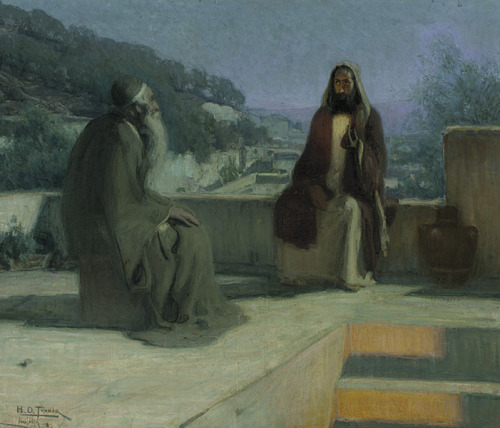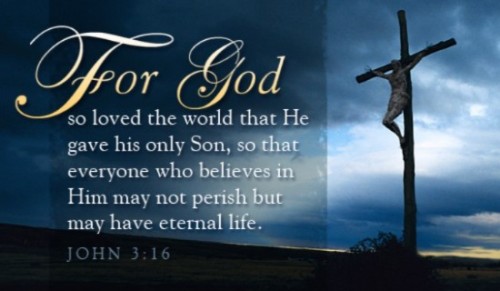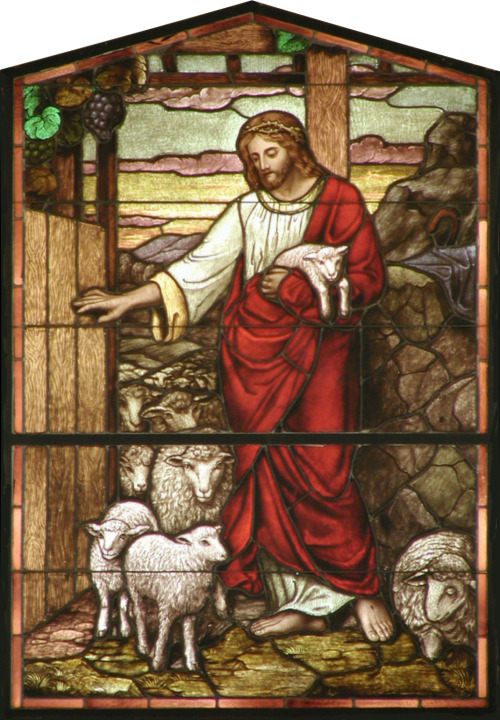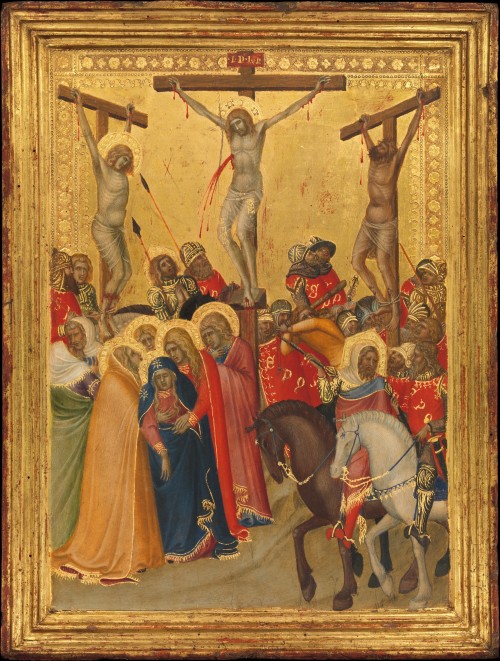By the Rev. Darren Miner
Today’s Gospel reading relates the tail end of an encounter between Jesus and a man named Nicodemus. Now, Nicodemus is an interesting fellow. He sat on the ruling council of Jerusalem. He was a member of the pious Pharisaic sect. He was an acknowledged teacher of Israel. Yet with all these credentials and reasons to be smug about his knowledge of God, Nicodemus recognizes that Jesus is something much more than an acknowledged teacher of Israel; he recognizes that Jesus is “a teacher who has come from God.”
But Nicodemus is not a full-fledged convert. For one thing, he is not willing to be seen in public associating with Jesus. John’s Gospel emphasizes that Nicodemus “came by night.” Perhaps he felt it would be too damaging to his reputation to be seen with this itinerant rabbi.

Jesus opens the conversation with Nicodemus with a teaching about the need for spiritual rebirth. When Nicodemus fails to understand Jesus’ teaching, Jesus gently chides him for his invincible ignorance. But Jesus doesn’t give up on Nicodemus. Instead, he continues to teach him.
He teaches Nicodemus about the price of salvation, death on a cross. And he likens his future crucifixion to the bronze serpent that was raised up by Moses to bring healing to victims of snake bite. But unlike the episode with the bronze serpent, the lifting up of Jesus on the cross will bring healing to countless people throughout the generations—to all who come to trust in him and in the Father who sent him.
Jesus then tells Nicodemus, and us, one of the most important teachings in the entire Bible. He tells us why God sent Jesus, his Son, into the world. “For God so loved the world that he gave his only Son, so that everyone who believes in him may not perish but may have eternal life (John 3:16).”

Now, in most instances in John’s Gospel, the word “world” is code for those who actively oppose the ministry of Jesus. But here, I think, the word is used more inclusively. Here, we learn that eternal life is a gift from God, given to the entire world out of pure love, and that we can choose to accept this gift through faith in his Son Jesus Christ and faithfulness to Jesus’s teaching.
The next verse in today’s reading reinforces this happy teaching, reassuring us that Jesus did not come to condemn the world, but to save it. Now, if Jesus had concluded his teaching at this juncture, I think we would all be more comfortable with the Gospel reading. But Jesus doesn’t stop there. Instead, he warns that those who actively reject him and choose to walk in spiritual darkness have thereby condemned themselves.
Jesus makes it clear that God’s offer of salvation comes with strings attached; or to be more precise, it comes with one string attached. We are required to trust in Jesus, to trust in him so much that we give over our entire life to him, walking in his way of love.
Now, so far as we know, Nicodemus never became a full disciple of Jesus, never gave himself wholly and openly to the service of the Son of Man. But we know that he was so close to doing so. So close!
Brothers and sisters, don’t be like Nicodemus. Don’t hold back. Give yourself, your entire self, to the service of God’s Son. Trust in him with your whole heart, and follow him, bearing your cross, wherever he may lead. For the reward for total trust in him is nothing less than eternal life.
Amen.
© 2021 by Darren Miner. All rights reserved. Used by permission.





You must be logged in to post a comment.